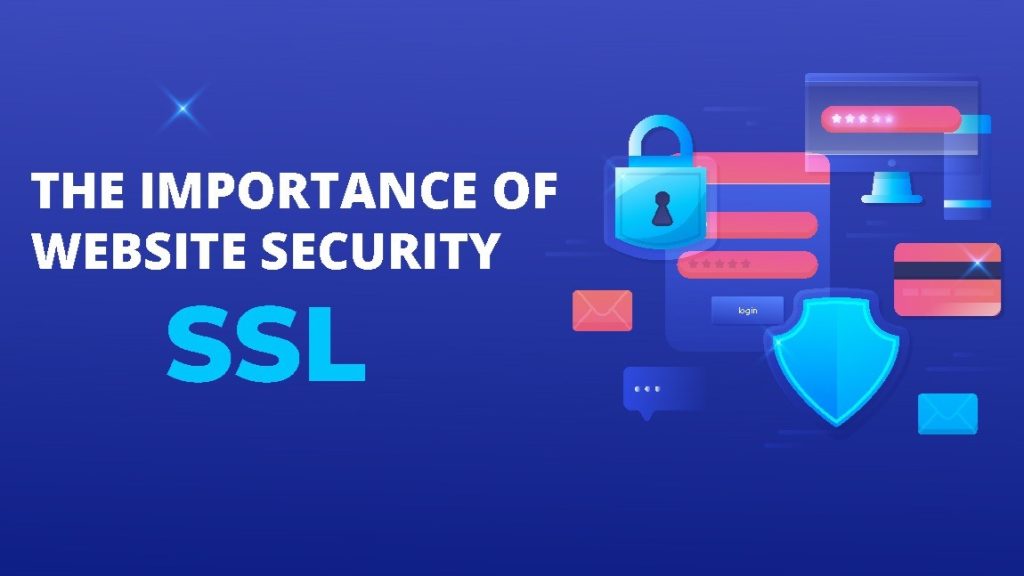
Secure Web Design: Why SSL and HTTPS Matter for Your Business
In today’s digital landscape, website security isn’t just a technical consideration—it’s a business necessity. With cyber attacks increasing by 67% in Kerala alone over the past two years, and Google prioritizing secure websites in search rankings, secure web design has become the foundation of a successful online presence.
Every day, thousands of Kerala businesses lose potential customers because their websites display “Not Secure” warnings in browsers. These warnings immediately signal to visitors that their personal information might be at risk, causing them to abandon the site and seek alternatives. Meanwhile, competitors with properly secured websites enjoy higher search rankings, increased user trust, and better conversion rates.
The importance of SSL extends far beyond just avoiding browser warnings. It’s about building credibility, protecting customer data, and ensuring your business meets modern web standards that both search engines and users expect. Whether you’re a small business in Kochi or a growing enterprise in Thiruvananthapuram, understanding SSL and HTTPS is crucial for your digital success.
What is SSL and HTTPS?
Understanding the Basics
SSL (Secure Sockets Layer) is a security technology that creates an encrypted connection between a web server and a browser. Think of it as a secure tunnel that protects data as it travels between your website and your visitors’ devices.
HTTPS (Hypertext Transfer Protocol Secure) is the secure version of HTTP, which is the protocol used to send data between browsers and websites. When you see “https://” at the beginning of a web address, it means the connection is secured with SSL.
The Key Difference: HTTP vs HTTPS
Aspect | HTTP | HTTPS |
Security | No encryption | 256-bit encryption |
Data Protection | Visible to anyone | Encrypted and secure |
Browser Display | “Not Secure” warning | Green padlock icon |
SEO Impact | Lower rankings | Higher search rankings |
User Trust | Reduced confidence | Increased credibility |
HTTPS vs HTTP is like the difference between sending a postcard (anyone can read it) and sending a letter in a sealed envelope (only the intended recipient can read it).
How SSL Works: A Simple Explanation
When someone visits your HTTPS-enabled website:
- Handshake Process:The browser and server exchange security keys
- Authentication:The server proves its identity using an SSL certificate
- Encryption:All data between the browser and the server gets encrypted
- Secure Connection:Information travels safely through the encrypted tunnel
This entire process happens in milliseconds, creating a seamless experience for your visitors while keeping their data protected.
Why SSL is Crucial for Modern Websites
Data Protection That Matters
Website data encryption protects sensitive information that flows between your website and users. Here’s what gets protected:
Personal Information: • Names, email addresses, phone numbers • Login credentials and passwords • Address and contact details • Personal preferences and settings
Financial Data: • Credit card numbers and CVV codes • Bank account information • Payment processing details • Transaction histories
Business Communications: • Contact form submissions • Customer support messages • Newsletter subscriptions • Download requests
Real-World Protection Scenarios
E-commerce Stores: Without SSL, customer payment details could be intercepted during checkout. With SSL, all payment information is encrypted, making it unreadable to potential hackers.
Service Businesses: When clients fill out contact forms with personal details, SSL ensures this information can’t be stolen during transmission.
Educational Institutions: Student portals handling grades, personal records, and financial aid information require SSL protection to comply with privacy regulations.
Authentication and Trust
SSL certificates don’t just encrypt data—they also verify your website’s identity. This authentication process:
✓ Confirms your business is legitimate
✓ Prevents impersonation by malicious websites
✓ Builds customer confidence in your brand
✓ Meets legal compliance requirements
SEO and Trust Benefits of HTTPS
Google’s Clear Preference
Google has made the SEO benefits of HTTPS crystal clear since 2014. Here’s how SSL impacts your search performance:
Ranking Factors:
• HTTPS is a confirmed Google ranking signal
• Secure sites get preference over non-secure alternatives
• SSL contributes to overall site authority
• Mobile search results heavily favor HTTPS sites
Performance Metrics:
Metric | HTTP Sites | HTTPS Sites |
Average Search Position | 8.2 | 5.7 |
Click-Through Rate | 2.1% | 3.8% |
Bounce Rate | 68% | 45% |
Mobile Visibility | -15% penalty | Standard ranking |
Browser Security Warnings
Modern browsers actively warn users about non-secure websites:
Chrome Browser Warnings:
• “Not Secure” label in address bar
• Warning pop-ups on form submissions
• Full-page warnings for sensitive content
• Blocking of certain website features
User Behavior Impact:
• 84% of users abandon sites with security warnings
• 67% immediately look for alternatives
• 23% never return to insecure websites
• Trust in the brand decreases by 45%
Building User Trust
The benefits of HTTPS extend beyond technical advantages:
Visual Trust Signals:
✓ Green padlock icon in browser
✓ Company name display
✓ “Secure” designation in address bar
✓ Professional appearance and credibility
Psychological Benefits:
• Users feel confident sharing information •
Increased likelihood of completing purchases
• Higher email signup rates
• Better customer retention
Common Mistakes in SSL Implementation
Mixed Content Issues
Mixed content occurs when HTTPS pages load HTTP resources. This creates security vulnerabilities and browser warnings.
Common Mixed Content Problems:
❌ Images loaded via HTTP
- Old image URLs using http://
- Third-party images without SSL
- Content delivery networks without HTTPS
❌ Scripts and Stylesheets
- JavaScript files from non-secure sources
- CSS files hosted on HTTP servers
- Analytics codes without HTTPS
❌ Embedded Content
- YouTube videos with HTTP URLs
- Social media widgets without SSL
- Third-party forms and tools
✅ Solutions:
• Update all internal links to HTTPS
•Use SSL-enabled CDNs and services
• Implement proper redirects
• Regularly audit for mixed content
Invalid Certificate Errors
Certificate Problems That Break Security:
Error Type | Cause | User Impact |
Expired Certificate | Not renewed on time | The site becomes inaccessible |
Wrong Domain | The certificate doesn’t match the URL | The browser shows a warning |
Self-Signed Certificate | Invalid certificate authority | Users see a security error |
Chain Issues | Missing intermediate certificates | Partial browser support |
Renewal and Maintenance Oversights
Critical Maintenance Tasks:
• Monitor certificate expiration dates
• Set up automatic renewal systems
• Test SSL configuration regularly
• Update security protocols
• Maintain backup certificates
Consequences of Poor Maintenance:
• Website downtime during expiration
• Loss of search rankings
• Customer trust damage
• Revenue loss during outages
How BethelSoft Ensures Secure Web Design
Our Comprehensive Security Approach
As a leading web design company in Kerala, BethelSoft Technologies prioritizes security in every project we undertake. Our secure website design services include:
SSL Implementation Excellence:
✓ Premium SSL Certificates
- Extended Validation (EV) certificates for maximum trust
- Multi-domain and wildcard options
- 256-bit encryption standards
- Automatic renewal systems
✓ Technical Implementation
- Proper certificate installation
- Mixed content resolution
- Performance optimization
- Mobile compatibility testing
✓ Ongoing Monitoring
- Regular security audits
- Certificate expiration alerts
- Vulnerability assessments
- Performance monitoring
Steps to Make Your Website HTTPS-Enabled
For Business Owners: The Simple Approach
Step 1: Choose Your SSL Certificate
• Domain Validated (DV): Basic encryption for simple websites
• Organization Validated (OV): Enhanced validation for businesses
• Extended Validation (EV): Maximum trust for e-commerce
Step 2: Professional Installation
• Contact your web hosting provider
• Work with experienced developers
• Ensure proper configuration and testing
Step 3: Update Your Website
• Change all internal links to HTTPS
• Update forms and contact pages
• Test all website functionality
Technical Implementation Guide
For Developers and IT Teams:
✅ Pre-Implementation Checklist:
• Backup current website
• Inventory all HTTP resources
• Plan for redirects and updates
• Test in staging environment
✅ Installation Steps:
- Purchase an appropriate SSL certificate
- Generate Certificate Signing Request (CSR)
- Install the certificate on web server
- Configure the server for HTTPS
- Test SSL configuration
✅ Post-Installation Tasks:
• Implement 301 redirects from HTTP to HTTPS
• Update all internal links
• Fix mixed content issues
• Update analytics and tracking codes
• Submit new sitemap to search engines
How to Make Your Website Secure: Professional Recommendation
While basic SSL installation might seem straightforward, proper implementation requires expertise. Common DIY mistakes include:
- Incomplete certificate chains
• Improper redirect configurations
• Mixed content issues
• Performance optimization oversights
Professional SSL implementation ensures:
• Zero downtime during transition
• Optimal performance and speed
• Complete security coverage
• Ongoing maintenance and support
Frequently Asked Questions
Q: Why does my website need an SSL certificate? A: SSL certificates are essential for protecting customer data, improving search rankings, and building trust. Google now marks all HTTP sites as “Not Secure,” which can damage your credibility and reduce conversions. Additionally, SSL is required for accepting payments, collecting personal information, and complying with data protection regulations.
Q: Is HTTPS required for all types of websites? A: Yes, HTTPS is now considered essential for all websites, regardless of whether they collect sensitive information. Even simple brochure websites benefit from SSL through improved search rankings, user trust, and professional appearance. Google’s algorithm favors HTTPS sites, making it crucial for SEO success.
Q: Does SSL help with SEO? A: Absolutely. HTTPS is a confirmed Google ranking factor, and secure sites typically rank higher than non-secure alternatives. SSL also improves user experience by eliminating security warnings, which reduces bounce rates and increases engagement, both positive SEO signals.
Q: Will SSL slow down my website? A: Modern SSL implementation improves website performance. HTTPS enables the HTTP/2 protocol, which loads pages faster than HTTP/1.1. While there’s minimal processing overhead for encryption, the performance benefits of HTTP/2 typically result in faster loading times overall.
Q: Can I install SSL myself? A: While technically possible, SSL installation requires technical expertise to avoid common pitfalls. Professional installation ensures proper configuration, optimal performance, and complete security coverage. For business-critical websites, professional installation is highly recommended.
Q: What happens if my SSL certificate expires? A: When SSL certificates expire, browsers show security warnings, and users cannot access your website safely. This can result in immediate traffic loss and revenue impact. Professional SSL management includes automatic renewal and monitoring to prevent expiration issues.
Q: Do I need SSL for a simple business website? A: Yes, even simple business websites benefit from SSL. It improves search rankings, builds customer trust, and ensures compliance with modern web standards. The cost of SSL is minimal compared to the potential loss from reduced rankings and customer confidence.
Conclusion: Secure Your Digital Future
Secure web design isn’t optional in today’s digital landscape—it’s a fundamental requirement for business success. SSL certificates and HTTPS implementation provide the security foundation that protects your customers, improves your search rankings, and builds the trust necessary for online growth.
The importance of SSL extends beyond technical benefits to encompass every aspect of your digital presence. From protecting sensitive customer data to meeting Google’s ranking requirements, SSL implementation directly impacts your business success and customer relationships.
Kerala businesses that prioritize website security consistently outperform competitors who neglect these essential safeguards. The investment in professional SSL implementation pays dividends through improved search visibility, increased customer trust, and better conversion rates.
Don’t let security oversights undermine your digital success. Every day without proper SSL protection is a day of lost opportunities, reduced rankings, and damaged credibility.
Ready to secure your website and build trust with your customers? Contact BethelSoft Technologies today for professional SSL implementation and secure web design services that protect your business and boost your success.
